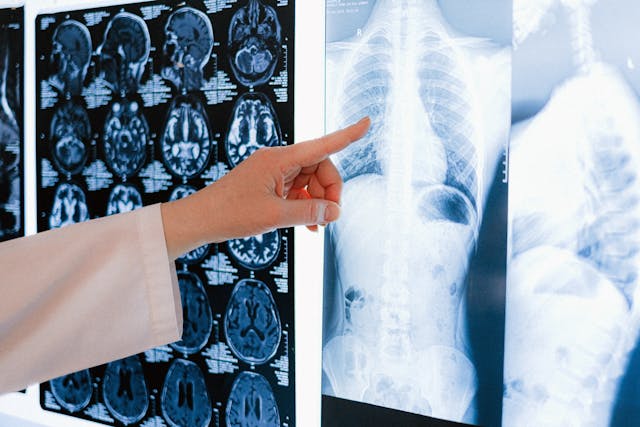
Yes, diesel exhaust causes cancer. Many medical studies over the last 40+ years have all proven that diesel exhaust causes cancer in railroad workers. What most people don’t know is that many of the cancer-causing substances in diesel exhaust are the same exact cancer-causing substances found in tobacco smoke. Some of these chemicals, which are found in both diesel exhaust and cigarettes, are well-known, such as arsenic, formaldehyde, and benzene.
Diesel exhaust is made up of thousands of different substances, and its composition can vary greatly depending on:
- diesel fuel type
- engine and emission technology
- operating conditions (operating up hills and inclines)
- engine maintenance
Approximately 40 different substances in diesel exhaust have been linked to various types of cancer. The International Agency for Research on Cancer (IARC) is the world’s most respected authority on cancer and its causes. One of the most comprehensive studies investigating the ability of diesel exhaust to cause cancer was IARC Monograph 105, which was the subject of a prior blog. After carefully considering all the evidence, IARC concluded that diesel exhaust causes cancer. Many of the studies IARC relied on involved diesel-exposed railroad workers. These published studies found that railroad workers with diesel exhaust exposure were more likely to develop cancer. Monograph 105 listed the various chemicals and metals found in diesel and gasoline engine exhaust, which can be associated with different types of cancer:
Metals
- Antimony compounds
- Arsenic and inorganic arsenic compounds
- Beryllium and beryllium compounds
- Cadmium and cadmium compounds
- Chromium (VI)
- Cobalt and cobalt compounds
- Lead compounds
- Nickel
Organic chemicals
- 1,3-Butadiene
- Acetaldehyde
- Benzene
- Bis(ethylhexyl)phthalate
- Ethylbenzene
- Formaldehyde
- Propylene oxide
Halogenated and other chemicals
- Dioxin/dibenzofurans
Polycyclic aromatic hydrocarbons
- Benz[a]anthracene
- Benzo[b]fluoranthene
- Benzo[k]fluoranthene
- Benzo[a]pyrene
- Chrysene
- Dibenz[a,h]anthracene
- 3,7-Dinitrofluoranthene
- 3,9-Dinitrofluoranthene
- 1,3-Dinitropyrene
- 1,6-Dinitropyrene
- 1,8-Dinitropyrene
- Indeno[1,2,3-cd]pyrene
- Naphthalene
- 3-Nitrobenzanthrone
- 6-Nitrochrysene
- 2-Nitrofluorene
- 1-Nitropyrene
- 4-Nitropyrene
- Styrene
According to IARC and other reputable scientific and medical health agencies, these various substances contained in diesel exhaust have been linked to many different types of cancer:
- Lung Cancer
- Bladder Cancer
- Kidney Cancer
- Nasal Cancer
- Nasopharyngeal Cancer
- Throat Cancer (Larynx, Pharynx, Esophagus)
- Acute Myeloid Leukemia (AML)
- Chronic Lymphocytic Leukemia (CLL)
- Chronic Myeloid Leukemia (CML)
- Myelodysplasia Syndrome (MDS)
The fact that railroad workers were often exposed to multiple cancer-causing agents at the same time would have led to increased cancer risks from those additional exposures as well. For instance, railroad workers who were exposed to asbestos could have an increased risk of developing all the different types of cancer caused by asbestos, including lung cancer, colon cancer, stomach cancer, laryngeal cancer, esophageal cancer, and other types. At the same time, the exposures to diesel exhaust would create additional cancer risk above and beyond the asbestos cancer risks. The same would be true for any other cancer-causing substances that railroad workers were exposed to, including welding fumes, ballast dust, silica, and solvents/degreasers.
If you or a loved one has cancer and worked for the railroad and had significant toxic exposures, call the railroad cancer attorneys at Doran and Murphy to learn about your rights to compensation. Our diesel cancer lawyers have decades of experience in dealing with the largest railroads in the country and can get you the compensation you deserve. There is no risk to you or your family — there is no legal fee unless we are successful! Call Doran and Murphy today at 1-800-374-2144 to find out what compensation is available to you, or you can contact us here.





